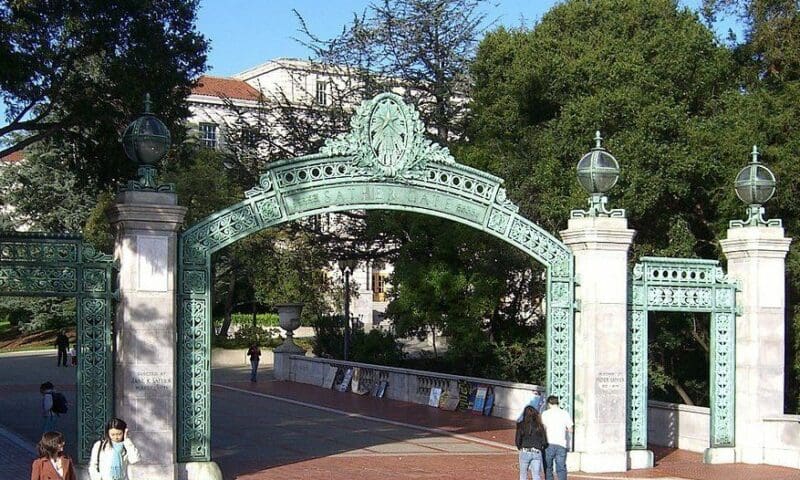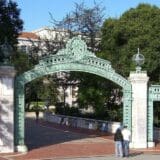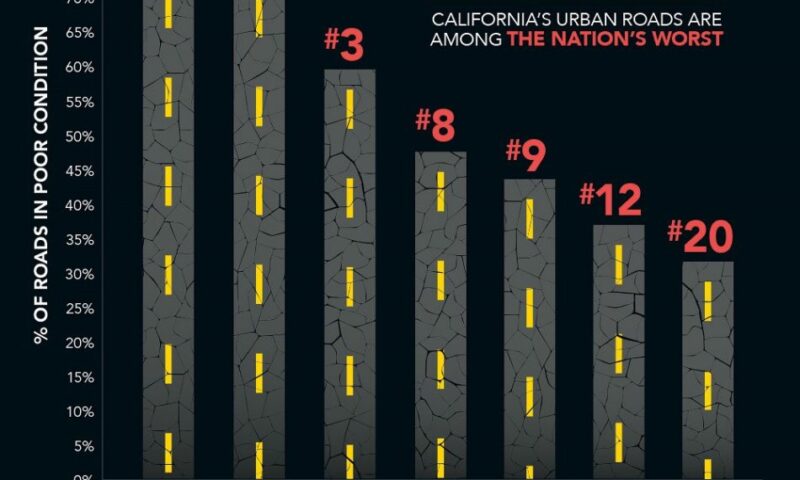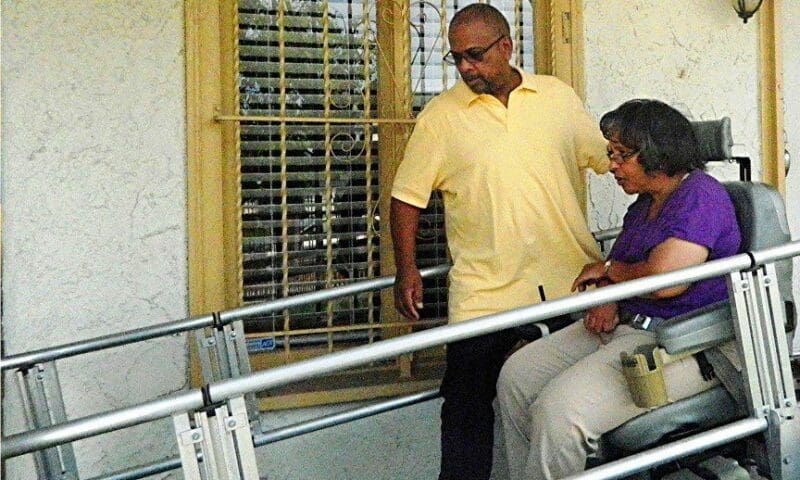

Next spring, the U.S. Supreme Court will decide a case that could threaten the economy and American democracy. Friedrichs v. California Teachers Association asks the justices to consider overturning a 1977 Supreme Court unanimous ruling (Abood v. Detroit Board of Education) that protected the right of teachers, nurses, librarians, firefighters and other public workers to form unions. The Abood case emphasized that these workers act as the middle class’ backbone by providing quality public services and ensuring healthy communities.
In Abood, the Court ruled that every public worker who benefits from collective bargaining could be required to pay their fair share for those efforts. It’s a basic democratic principle.
For a preview of what will happen if the Court sides with the plaintiffs in Friedrichs, we should look at Wisconsin.
» Read more about: The Supreme Court and "Friedrichs" — Lessons From Wisconsin »


When California Governor Pat Brown helped create the modern University of California system in the early 1960s, he envisioned many things: a world-class structure of higher education, universal access to students from every background, a gateway to middle-class careers, cutting-edge research centers. All of that has come to pass, making UC an enduring part of Brown’s legacy.
One thing Brown did not foresee, however, was UC becoming embroiled in an emblematic fight over economic inequality, with critics charging that one of the nation’s most prestigious public institutions is perpetuating poverty.
The controversy over UC’s use of thousands of contract workers who earn low wages with few, if any, benefits has taken center stage in Sacramento, where legislation that would end such practices cleared the Legislature last week. The fate of Senate Bill 376, sponsored by state Senator Ricardo Lara (D-Bell Gardens), now rests with Pat Brown’s son,
» Read more about: Jerry Brown’s University of California Perma-Temp Problem »


Like a charismatic politician whose flaws have yet to be exposed, the so-called sharing economy enjoyed a meteoric rise to fame and success. Uber, Lyft, Airbnb — these companies emerged seemingly from nowhere to become economic and cultural powerhouses, and to challenge the prevailing structure of their respective industries.
But 2015 has not been as kind to Uber and its brethren, as the fascination with a new business model has given way to serious concerns over everything from public safety to worker exploitation to unfair market monopolization. In some ways this is not surprising — the honeymoon for startups can be notoriously brief.
But something larger is at play here. In the age of rampant income inequality, the overhyped promises of the sharing economy are running headlong into a growing desire by Americans for a caring economy.
There’s a reason why even Republican presidential candidates,
» Read more about: Uber and Airbnb: A 'Sharing' Economy for Whom? »


State lawmakers returned from the Labor Day weekend to face a potential Greek tragedy as the current legislative session enters its final days. Taking center stage is a contentious battle pitting the oil industry, the California Chamber of Commerce and a group of business-friendly Democrats against two history-making global warming measures.
Senate Bill 32, authored by Senator Fran Pavley (D-Agoura Hills), seeks to extend the greenhouse gas (GHG) emission reductions already achieved by Assembly Bill 32, a bill Pavley helped write as an assemblymember, and which became the state’s highly effective 2006 carbon cap-and-trade law.
Senate Bill 350 is the attempt by Senate President Pro Tem Kevin de León (D-Los Angeles) to spell out the “Golden State Standards 50-50-50” that Governor Jerry Brown unveiled in January’s State of the State address. It would require California to double the energy efficiency of its older buildings,
» Read more about: Sacramento Battle Over Historic Climate Change Bills »


Lucy Dunn has a message for Republican lawmakers: Approve new revenue now to fix California’s decaying highway and bridge system or face severe economic consequences that will be felt throughout the state for decades.
Dunn is no big-spending liberal and you won’t find a Proud to Be Union bumper sticker on her car. In fact, she’s president of the influential Orange County Business Council and a card-carrying Republican. But to Dunn, funding long-neglected transportation maintenance and repairs is an existential issue for California’s business community.
“If you can’t move people and goods on safe roads and bridges, you cannot do business in the state,” Dunn tells Capital & Main.
California ranks 45th among the 50 states for overall highway performance.
This fundamental lesson was brought to urgent life in July,
» Read more about: Can a Business-Labor Alliance Save California’s Infrastructure? »


Disabled and elderly Californians have cause to worry as time marches forward to June 30, 2016. That’s the deadline for Governor Jerry Brown and state legislators to find a permanent solution to keep whole one of California’s largest assistance programs for the state’s most vulnerable populations.
For this fiscal year, a seven percent cut– $226 million–was restored to the In-Home Supportive Services (IHSS) program in June. But without solid funding for the future, nearly a million adults, children and their caregivers face losing hours of service and wages again.
The restoration of the cuts was a huge victory for consumers of IHSS’s services, according to Brandi Wolf, California policy director for the United Long Term Care Workers (ULTCW), “but living from year to year [involves] a tremendous amount of uncertainty. We can’t ask consumers to live in this uncertain world.” ULTCW, an affiliate of the Service Employees International Union, represents many IHSS workers.
» Read more about: Vulnerable Home Care Recipients Fear Losing Services—Again »


In 1936, during the throes of the Great Depression, FDR addressed a deeply divided and economically insecure nation on the eve of Labor Day:
“There are those who fail to read both the signs of the times and American history. They would try to refuse the worker any effective power to bargain collectively, to earn a decent livelihood and to acquire security. It is those short-sighted ones, not labor, who threaten this country with that class dissension which in other countries has led to dictatorship and the establishment of fear and hatred as the dominant emotions in human life.”
The parallels to what’s happening today are remarkable.
While the circumstances differ from now, the insecurity so many felt in 1936 is as strong as it was then. It exists across sectors. It exists regardless of geography. It exists because the wealthy few have reaped the rewards of our labor without sharing the prosperity.
» Read more about: This Labor Day Unions Remain a Beacon of Hope for Millions »


According to a Sacramento Bee story published today, California State Senator Holly Mitchell (D-Los Angeles) has dropped her campaign to pass Senate Bill 23, which would have repealed the Maximum Family Grant rule, a 20-year-old law that blocked state welfare services for children born to mothers who receive welfare. The Bee’s Capitol Alert story reported,
Mitchell’s bill is currently awaiting a vote on the Assembly floor, and she said she would instead push to get the policy into next year’s budget.
“How would we pay for it?” Mitchell said. “Because of the huge price tag, I’m going to continue working with the administration during the interim.”
Writing in Capital & Main, Judith Lewis Mernit recently described the Maximum Family Grant rule as “a relic of a 1990s-era conservative belief that women were deliberately having more babies just to rake in more benefits,
» Read more about: Holly Mitchell Drops Bid to Restore Child Welfare Cuts »


As the edge of summer burns into early autumn, students across the country are going back to school. Most are returning to friends and meeting teachers, but students at Illinois’ Barrington High School are arriving this year to signs that read, “Can’t live on $8.50,” and shouts of “Devuelvenos nuestros salarios!” (Give us back our wages!)
A majority of the school’s contracted janitors—organized by the Service Employees International Union—are striking because, after the Barrington school district renewed a contract with its employer in June, their wages were cut from $9.77 an hour. Already without sick days and health insurance, the janitors are now faced with even lower poverty wages.
As our publication, Making the Grade? Questions to Ask About School Services Privatization, discusses, school districts often don’t save money when they outsource support positions rather than keep them in-house. When contractors aim to maximize profit,
» Read more about: Outsourcing: Maximum Profits, Minimum Standards »


Though we tend to associate it with barbecues and retail sales, Labor Day is a holiday honoring the American labor movement. And an easy way to celebrate the movement that brought us the minimum wage, an 8-hour workday and an end to child labor is by buying Sam Adams, Doritos, and other union-made nosh for Monday’s get-togethers.
All the products listed below are made by unionized workers . You can find a more comprehensive list over at the website Labor 411.
Chips & Dip
Tostitos Chips, Salsas, and Dips
Mission Chips, Salsas, and Dips
Doritos
Cheetos
Fritos
Rold Gold Pretzels
Meat & Buns
Ball Park franks
Hebrew National franks
Oscar Meyer & Boar’s Head hot dogs
Sara Lee buns
Oroweat buns
Condiments
Heinz Ketchup
French’s Mustard
Vlasic (Relish,
» Read more about: A Labor-Friendly Shopping List for Labor Day »